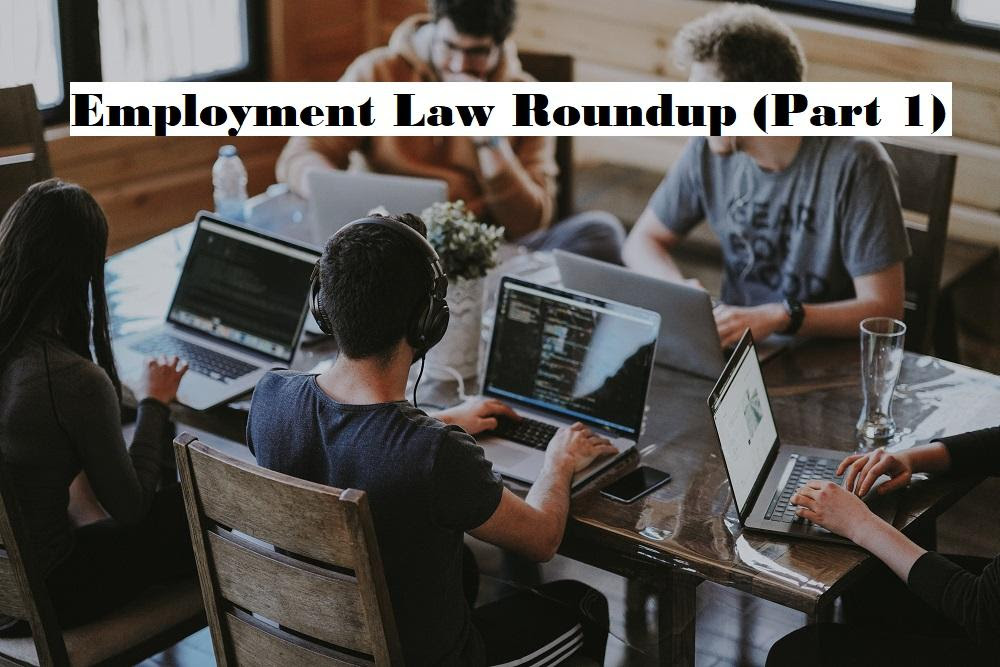Part 1 (Federal Law)
EEOC on Caregiver Duties
In March, the US Equal Employment Opportunity Commission (EEOC) issued guidance on The COVID-19 Pandemic and Caregiver Discrimination Under Federal Employment Discrimination Laws.
These guidelines remind employers that it is unlawful to discriminate against a person with caregiving responsibilities when the discrimination is based on an applicant’s or employee’s sex (including pregnancy, sexual orientation, or gender identity), race, color, religion, national origin, age (40 or older), disability, or genetic information (such as family medical history).
Caregiver discrimination is also unlawful when it’s based on an applicant’s or employee’s association with someone else who has a disability, or on the race, ethnicity, or other protected characteristic of the person being cared for.
EEOC on Religious Accommodation and Vaccine Mandates
Also in March, the EEOC issued guidance on Title VII Religious Objections to COVID-19 Vaccine Requirements.
The EEOC makes clear that employers are not required to accept an employee’s assertion of a religious objection to a COVID-19 vaccination at face value.
Rather, an employer is allowed to ask an employee who is claiming a religious objection to explain how the employee’s religious beliefs, practices, or observances conflict with the employer’s COVID-19 vaccination requirement.
The guidance goes on to discuss the types of accommodation that may be available and when an accommodation would be an “undue hardship” permitting the employer to deny the employee’s request.
Personal Liability for OSHA Penalties
When a business is conducted as its own separate legal entity (e.g., a corporation or LLC), only that entity is liable for penalties issued pursuant to the Occupational Safety and Health Act, but a recent case held that OSHA has the right to “pierce the corporate veil” and impose personal liability on the entity’s owners.
In Secretary of Labor v. Juan G. Quevedo-Garcia, the administrative law judge found that the majority owner of an LLC had abused the corporate form and was personally liable for approximately $2 million in workplace safety penalties.
In determining that the company’s owner should be personally liable, the judge looked at several factors, including gross undercapitalization of the business, failure to observe corporate formalities (there were no corporate minutes or resolutions and no Operating Agreement), siphoning of funds from the company by the majority owner, and evidence that the company was really a façade for the majority owner’s own operations.
After considering these and other factors, the administrative judge held that because the company’s majority owner essentially operated the company as if were an interchangeable extension of himself, he was personally liable for the OSHA penalties.
Combination of Closely Related Small Companies Under the ADA
Normally a company with fewer than 15 employees is not covered by the Americans with Disabilities Act (ADA), but last month, the US Court of Appeals for the Ninth Circuit held that closely related small companies that are an “integrated enterprise” may be combined for purposes of counting employees and triggering the ADA.
In Buchannan v. Watkins & Letofsky, LLP, the plaintiff, an associate attorney, claimed that the law firm she worked for had violated the ADA by not accommodating her health issues. While the firm employing her did not have enough employees to trigger the ADA, she argued that the same two managing partners managed and controlled another entity, and together, the two firms had more than 15 employees.
In determining whether the two employers were so “interconnected” that the employees should be counted together for purposes of triggering the ADA, the court considered factors such as common ownership, common management, centralized control of labor relations, and interrelation of operations.
Here, the two offices and their employees were managed by the same individuals, and the firms shared the same website and toll-free phone number. In addition, the offices shared operational and administrative work and used the same email template footer, which listed both offices.
Although the California and Nevada offices did maintain separate books, the court found in favor of the plaintiff, meaning that although the firm she worked for had fewer than 15 employees, it was still subject to the ADA.
*************
For more information about employment law, see Employment Law (in Plain English)®, co-authored by members of this law firm. The book is available through Skyhorse Publishing, Amazon, Barnes & Noble, Powell’s Books, and Bookshop (an online bookstore that allows you to support your favorite independently owned bookstore).
Photo by Annie Spratt on Unsplash






